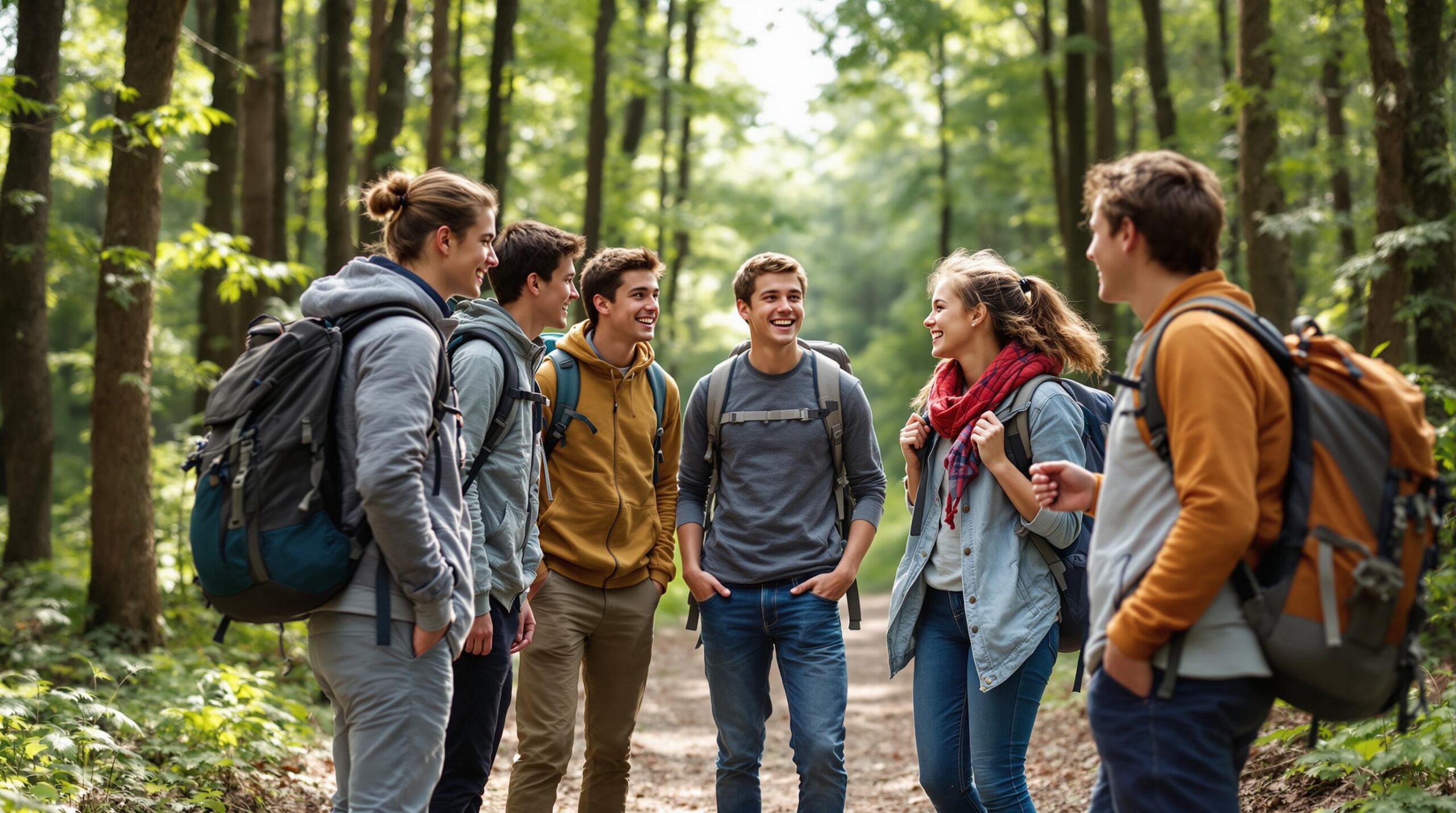The University of Vermont Extension’s 4-H has introduced a teen-led outdoor recreation program designed for high school students across the state, offering new ways to explore the outdoors while learning leadership skills. Organizers say the pilot initiative was launched to give participants a chance to direct their own experiences, from activity selection to community service projects.
This opportunity is open to all Vermont high schoolers, ages 14 to 18, and does not require prior involvement with 4-H. According to an official description from program materials, teens will have direct input in choosing recreational outings, scheduling guest speakers, and setting up hands-on service opportunities. Once responses are gathered, organizers plan to shape events around the interests of those who enroll.
The program has been divided into two regional chapters: one covering northern Vermont, which includes Addison, Caledonia, Chittenden, Essex, Franklin, Grand Isle, Lamoille, Orleans, and Washington counties, and another serving Bennington, Orange, Rutland, Windham, and Windsor counties in the south. A separate update in a separate notice indicates that each chapter will handle its own agenda once formed, allowing for flexibility in meeting virtually or in person.
Outdoor activities will likely include a mix of hiking, nature walks, camping, stewardship projects, and fun gatherings such as picnics or game nights. The exact lineup depends on the feedback organizers receive, which is why they have invited interested youth to complete the online survey by May 9. Submissions will help determine practical details like meeting frequency and how best to offer skill-building sessions.
Organizers say anyone who completes the survey on time will be entered into a random drawing for a hammock, adding an extra incentive for teens to share ideas. They expect this approach to ensure the final program layout truly reflects the preferences of the students who will be attending.
Participants can also look forward to community service projects and development of job skills, both of which will be folded into the recreational aspects. Individuals who want more details about regional offerings are advised to contact Holly Ferris for northern counties and Camille Kauffman for southern counties, using the enrollment materials provided to each participant.
Many campgrounds and RV parks can align with this initiative by creating youth-centric experiences that encourage teens to keep exploring the outdoors. Some recognized best practices include providing group-oriented amenities such as communal fire pits or activity fields and offering guided lessons on safe camping fundamentals. Simple sessions on Leave No Trace principles, for example, may help these young participants develop habits they carry into adulthood.
According to widely shared figures from a national organization focusing on youth engagement, nearly 60% of teens who learn basic camping skills through structured programs go on to become regular visitors of campgrounds as adults. This trend aligns with the spirit of Vermont 4-H’s program, which gives participants hands-on experiences that could foster a lifelong connection with outdoor hospitality options.
Meanwhile, one recognized environmental benchmark indicates that properties implementing energy-efficient lighting and robust recycling systems have reduced landfill-bound waste by up to 30%. These improvements echo the conservation-minded components of the teen-led program, where emphasis on stewardship extends to encouraging eco-friendly campsite operations that may yield positive impacts for local communities.
There is also broad industry support for giving teens a balance of structured activities and opportunities for independence. By blending organized events, such as group hikes, with downtime to explore on their own, campgrounds build trust with young guests and promote a safe yet engaging environment. Operators who adopt such strategies may see benefits in future customer loyalty or even potential staffing options down the road.
For businesses looking to highlight eco-conscious priorities, common steps range from installing recycling stations to conducting tree-planting projects. These approaches can be integrated seamlessly with teen-led stewardship events. Teen participants often look for tangible ways to protect the environment, and hosting a clean-up day or sponsoring local ecology education may resonate strongly with them.
Offering spaces for teen-led teams to organize conservation activities can also enhance an outdoor property’s sustainability credentials. As students become more active in environmental projects, they bring a sense of pride and responsibility that could draw additional visitors seeking properties with a positive ecological impact.
Organizers of the 4-H program affirm that once the chapters take shape, all planned events and opportunities will be determined by participants’ top choices. Their initial focus is on collecting teen voices, capturing a wide range of interests, and then unifying everyone around a core schedule of outings, service initiatives, and social gatherings.
Looking ahead, this new teen-led endeavor has the potential to deepen young people’s connection to nature while empowering them with organizational skills. Those seeking to get involved should fill out the survey and watch for further updates from University of Vermont Extension’s 4-H officials, who aim to nurture a vibrant, youth-driven outdoor community.


